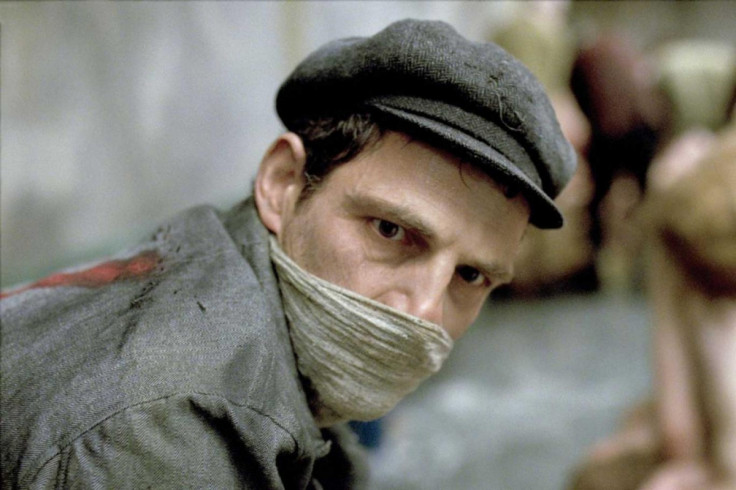Son Of Saul review: A harrowing look at life during the Holocaust

How can you depict the unimaginable horror of the Holocaust onscreen without trivialising it – turning an evil so colossal into something easily consumable?
Son Of Saul has the answer. An astonishing feature debut from Hungarian director László Nemes, here is a movie that takes you right into the heart of the brutality and chaos of the Holocaust in the most uncomfortable, disorientating way without ever losing its focus on the human cost.
At the centre of the movie in almost every single shot is Saul (Géza Röhrig), a Hungarian Jewish prisoner at Auschwitz-Birkenau who works as one of the Sonderkommando. Falling into a nightmarish limbo between the Nazi perpetrators and camp victims, the Sonderkommando were prisoners turned workers, tasked with leading people into the gas chambers and dealing with the disposal of the bodies afterwards.
During one of the exterminations Saul spots a boy he takes to be his son among the dead, thus sparking a quest by him to find a rabbi who can give his child a proper burial. Meanwhile his fellow comrades plot a means to overthrow their Nazi captives and escape the camp.

The story might be straightforward and conventional, but the way the whole film is shot is anything but. First emerging into view out of a blurry image of the camp, Saul's face is kept as the focal point of almost every shot, with an extremely shallow depth of field rendering the horrors of the camp around him out of focus.
Here is a movie that takes you right into the heart of the brutality and chaos of the holocaust in the most uncomfortable, disorientating way possible without ever losing its focus of the human cost of the tragedy.
It's an ingenious technique that works on numerous levels. By keeping the events out of focus, it never feels exploitative – the viewer is made aware of the horrors unfolding without being gratuitously shown exactly what is going on.
The relentless focus on Saul, coupled with the narrow 4:3 aspect ratio, means we are also subjected to a claustrophobic, intimate portrait of the Holocaust, journeying with our almost expressionless hero as he desperately tries to find his humanity in this most hopeless of situations.
The foggy image means that sound takes on even greater importance – an overwhelming cacophony of cries, screams, barked orders and hushed conspiracies that envelops the camp.
Despite the myopic viewpoint, the world of the camp is chillingly rendered in eerie detail for us to experience. From guiding people into the gas chambers, to disposing of the bodies, to discarding the ashes into the sea – Saul's nightmarish work shows the ruthless organisation of the Nazi's killing machine.
It's a system that spins wildly out of control as the film accelerates towards its dénouement. The Sonderkommando plan their escape, the allies close in, and the Nazis find that as the trains pile into Auschwitz they can no longer kill their captives quickly enough.
The order and the chaos, the humans and the dehumanising violence – never before have the horrors of the Holocaust been brought so vividly to the screen. It is rare to find a director both willing to confront such troubling subject matter, yet sensitive enough to realise how it should be presented. The fact that it's a debut feature makes it all the more remarkable.
Nemes has crafted here a frighteningly immersive, harrowing human odyssey into the depths of hell. Unquestionably grim and deeply uncomfortable, it makes for unforgettable viewing.
A frighteningly immersive, harrowing odyssey into the hell of Auschwitz.
© Copyright IBTimes 2025. All rights reserved.






















